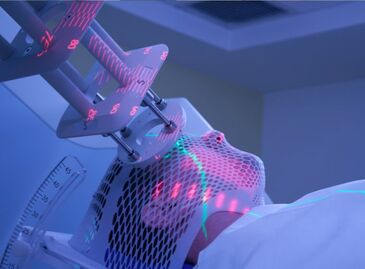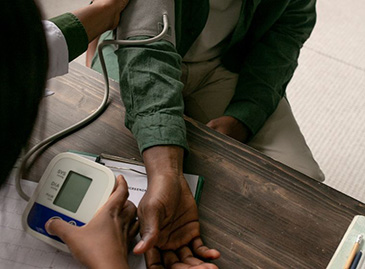Gynecomastia in Turkey
Gynecomastia is a condition characterized by the enlargement of male breast tissue, often caused by hormonal imbalances or certain medications.
We are with you throughout the entire process
You will find some useful information that will help you prepare the necessary organization to prevent all problems and make the necessary arrangements to ensure that everything goes smoothly during your stay in Turkey.
After our with doctor answers all your questions, doctor will explain to you how the operation process will proceed.
You will have a preliminary meeting with the doctor and team we work with before the operation.
Read the document we sent you before coming to Istanbul and be sure to follow the rules.
During the recovery process, our teams will call you, ask about your condition and ask for photos.
FAQ for Gynecomastia
You will find detailed information about the operation and organization you will need before coming to Turkey. You can contact your sales representative for any further questions.
- Gynecomastia in infants. More than half of male infants are born with enlarged breasts. This is due to the effects of their mother’s estrogen. Generally, the swollen breast tissue goes away within two to three weeks after birth. Gynecomastia during puberty. Gynecomastia caused by hormone changes during puberty is fairly common. In most cases, the swollen breast tissue will go away without treatment within six months to two years. Gynecomastia in adults. Researchers have found out that the presence among men ages 50 to 80 is between 24% and 65%. However, most men with the condition experience no symptoms.
- All tests should be completed, Chest and under-arms completely shaved, Do not eat/drink 6 hours before surgery, Wear comfortable clothes, Have a responsible person accompany you.
- Surgery risks include: Anesthesia risks, Bleeding, Blood clots, Breast asymmetry, Breast shape problems, Changes in nipple or breast sensation may be temporary or permanent Damage to deeper structures – such as nerves, blood vessels, muscles, and lungs – can occur and may be temporary or permanent, Deep vein wounds, Fatty tissue found in the, breast might die, Infection, Persistent pain, Poor wound healing
- As the fat and the glandular tissues, which are the root causes are removed, there are no chances of recurrence, but it is important for the patient to follow the surgeon’s post-surgery recommendations.
Latest posts & articles
Authorized by the Ministry of Health and Tourism in Turkey
Gynecomastia occurs because of excess breast tissue in boys and adult men. Imbalance in the hormones estrogen and testosterone cause excess breast tissue. One or both of your breasts may enlarge, which can happen in different sizes.
Gynecomastia frequently occurs in newborns, adolescents, and middle-aged men. One out of every three men suffers from this cosmetic problem. It occurs when the estrogen level in the male body exceeds the testosterone level. Also, there are other causes of gynecomastia. So, your problem may heal independently, or you may need medication or surgery.
Would you be interested in affordable gynecomastia surgery options? Istanbul Med Assist can help you to find your desired look without breaking the bank. We would like to help you every step of the way.
Why Is gynecomastia surgery done?
In gynecomastia surgery, they remove the excess tissue and correct the aesthetic problems. Since it causes low self-esteem and negatively affects your quality of life, surgery may be a preferable and healthy option.
Also, it occurs due to chemotherapy or certain diseases. Dialysis causes changes in hormone levels. Therefore, half of kidney failure patients suffer from gynecomastia. Similarly, liver failure and cirrhosis are among the causes.
As we age, there are changes in our hormone levels. It may occur with aging, especially in obese patients.
Gaining weight or having fat on your chest does not cause gynecomastia. It occurs due to the accumulation of extra tissue in your breast. Therefore, doing sports or losing weight will not help eliminate it.
Symptoms
Gynecomastia can occur in one or both of your breasts. You may feel swelling and tenderness in your chest. Also, you can see the asymmetry in your breasts. The areola area around the nipple may become enlarged. Furthermore, if you are experiencing problems such as excessive swelling, pain, and discharge, you may have a disease other than gynecomastia. In this case, you should see a doctor.
Moreover, swelling of your breast may not be due to gynecomastia. You may have swelling in your chest because of other diseases. You may experience swelling due to infection in the breast tissue. Excess fat on your chest may look like gynecomastia. Rarely can men also have breast cancer. As a result, you may experience swelling due to a nodule in one of your breasts.
Before treatment
They examine your medical history, medications, and any health problems in your family. Next, they physically examine your breast tissue, genitalia, and abdomen. If they observe hormonal imbalance, they recommend that adolescent patients wait a year. If the lump in your breast is extremely large or tender, they perform a biopsy to rule out breast cancer. Furthermore, your doctor will do various tests for other possible diseases. To diagnose gynecomastia, your doctor will perform blood tests and mammograms.
According to the result of these tests, you may also need to have the following:
- CT Scan
- MRI Scan
- Testicular Ultrasound
- Tissue biopsy
Treatment of gynecomastia
Usually, gynecomastia does not require treatment. So, it would be logical to consider surgery as a last resort. You may have it due to another illness, such as malnutrition, hypogonadism, or cirrhosis. In this case, your doctor must treat the disease first. Also, certain medications may cause gynecomastia. Your doctor will recommend that you stop the medication or use an equivalent. If you need the medication for short-term treatment, the gynecomastia will disappear. However, you may need treatment if it disappears within two years.
The same is true for adolescent patients with hormone imbalances. It will most likely go away in less than two years. If not, surgery is a healthy option.
Gynecomastia surgery
Your breast comprises glandular and fatty tissue, and everyone has different proportions. Gynecomastia means you have more of both tissues in your breast. Your doctor can remove excess fat tissue with liposuction. They insert a tube through a 3-4 mm cut. Liposuction helps remove fat tissues. In addition, your doctor may need to clear your gland tissues. For that, you need to have mastectomy surgery. In this procedure, your doctor cuts off excess glandular tissue with a scalpel. A result of mastectomy is scarring around the nipple. The size of the scar varies with the amount of tissue that needs to be removed. The scar will be more prominent if more tissue needs to be removed. In some cases, the doctor may combine mastectomy and liposuction.
Medication
Medication for gynecomastia is also an option. Tamoxifen, which inhibits the release of estrogen in the body, is one of them. It is usually used in the treatment of breast cancer. But nowadays, it is a suitable treatment option for gynecomastia. In addition, aromatase inhibitors such as Arimidex are also used for the treatment. Aromatase inhibitors are typically used to treat breast and ovarian cancer in postmenopausal women. Finally, the doctor may administer a testosterone supplement to older men with low testosterone levels.
Results
Gynecomastia is not usually a problem that requires treatment. Cases often resolve without the need for medication or surgery. In addition, treatment often results in success. Men with gynecomastia have a slightly higher chance of developing breast cancer, although it is still considered very low risk. But other than that, it does not cause any health problems. We leave out the psychological damage it has caused.









